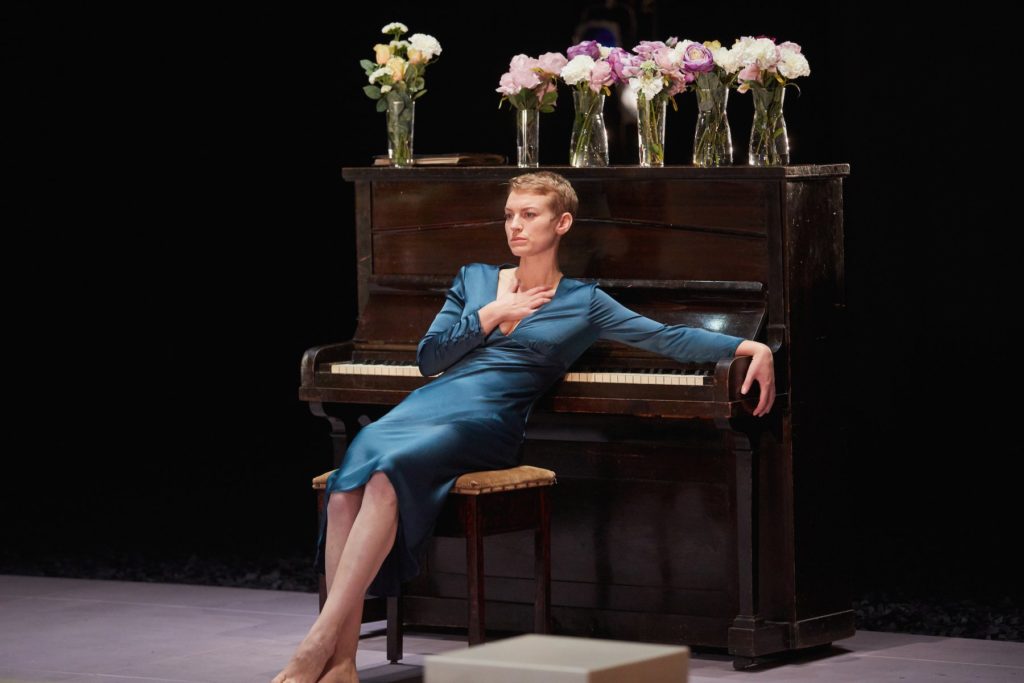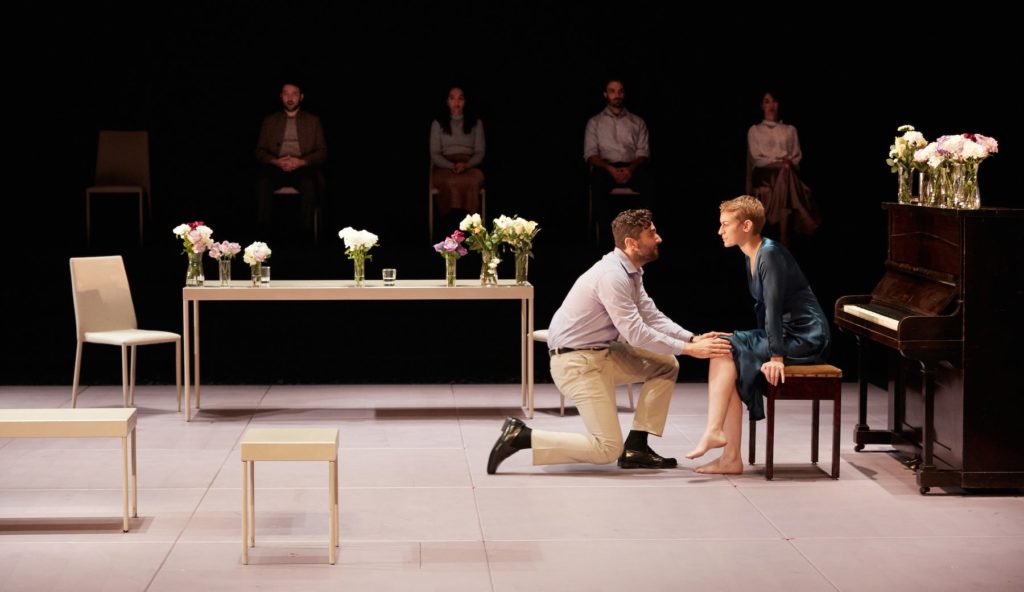
Play: Henrik Ibsen
Adapted from the original by Brian Friel.
Director: Chelsea Walker
 (3 / 5)
(3 / 5)
A dark play, dealing with themes of manipulation and obsession, with a feminist agenda rampant throughout, Hedda Gabler is not a work to be undertaken lightly by any director. All the more credit, then, to Chelsea Walker not only for tackling the issues head on, but for giving Brian Friel’s adaptation, premiered in Dublin in 2008, a contemporary slant which, in focussing on the vagaries of the central character whose name is the title of the play, also explores the elements that have produced them. To quote the Sherman’s artistic director Joe Murphy:
“In this age of identity crises, both personal and political, this play has never been more relevant.”
No less daunting is the task facing Welsh actress Heledd Gwynn as Hedda, in a role that has been performed by numerous famous actresses over the years. Hedda is a complex woman – a young wife who has everything she wanted and nothing that she really wants. As bored in her marriage as she was beforehand, Hedda is ripe for mischief – with tragic results. Gwynn’s performance is a tad tentative in the first half; her character definition a slow burner. Not altogether a bad thing, but she needs to slow down a tad speech-wise.
Nice character development from Marc Antolin as Hedda’s ambitious academic husband George Tesman. Boyish and self-depreciating but ambitious when it comes to the prospect of being beaten to the post by fellow academic the quasi-reformed druggie and former lover of Hedda Eilert Loevborg, who has returned to the fold just in time to cause chaos – a chaos that eventually tips over into tragedy. Tesman’s attitude to his wife is a key element, and in Walker’s hands this production makes this crystal clear. As Eilert, Jay Saighal shows a relish for the role, coming to his own in the second half; difficult to say more without being in danger of a spoiler.

In the skilled hands of Nia Roberts, who many will remember from the TV series Keeping Faith, the character of George’s aunt Julia Tesman is a joy to watch – the ebullient, loving auntie failing to see the danger of a claustrophobic relationship based on treating a grown man as a boy. Ibsen’s classic take on the power of family to support but also to destroy is one of the many themes in this complex play, and Friel’s adaptation gives it full credence in this production.
Returning to the Sherman, as Hedda’s friend Thea Elvsted, Alexandra Riley ticks the boxes in demonstrating the power of female friendship.
A modernistic set by Rosanna Vize, aided considerably by lighting by Joseff Fletcher, includes a working firepit – worry not, fully authorised by Health and Safety, although obviously requiring careful watching and a vast amount of clearing up after each performance Nevertheless, a highly effective replacement for the stove used when the play was first performed in its original form in Munich in 1891. Autres temps, autres mœurs – does Friel’s adaptation as staged in this production stand the test of time? A mind-blowing 128 years later, attitudes towards class, wealth and social standing -not to mention the big one, gender, coupled with identity crises – have changed immeasurably. Or have they really changed that much? Can we sympathise with Hedda? Or not?

The answer to those questions is:…..
Go to see the play- then judge for yourself.
